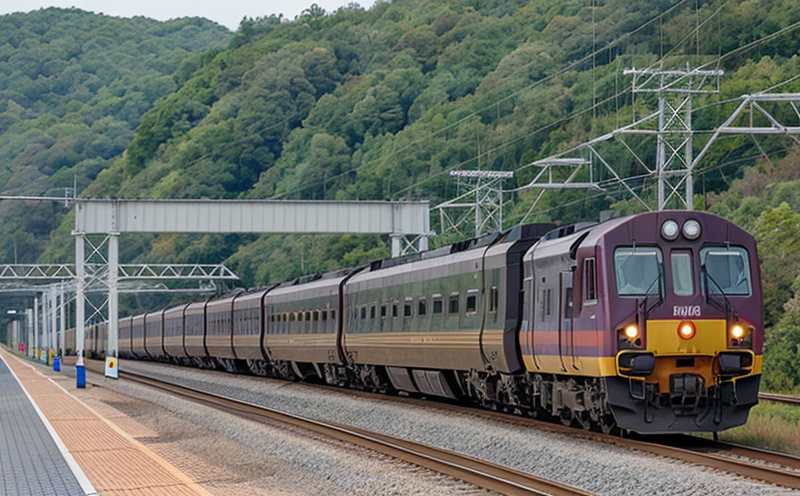Testing for Radio Frequency Interference in Rail Systems
Ensuring Rail System Reliability The Importance of Testing for Radio Frequency Interference in Rail Systems
As the world becomes increasingly dependent on rail systems for transportation and logistics, the need for reliable and efficient operations has never been more critical. One often-overlooked aspect of rail system maintenance is testing for radio frequency interference (RFI) a critical laboratory service that ensures the smooth operation of rail infrastructure. At Eurolab, our expert team provides comprehensive Testing for Radio Frequency Interference in Rail Systems, helping businesses safeguard their reputation and ensure public safety.
What is Testing for Radio Frequency Interference in Rail Systems?
Radio frequency interference (RFI) refers to the disturbance or disruption of radio communication signals caused by other devices or sources. In rail systems, RFI can be particularly problematic, as it can lead to errors, malfunctions, and even accidents. Testing for RFI involves using sophisticated equipment to detect and measure the presence of unwanted radio frequencies in rail systems.
Why is Testing for Radio Frequency Interference in Rail Systems Essential?
Testing for RFI is crucial for several reasons
Ensures Public Safety By identifying and mitigating RFI sources, businesses can prevent accidents caused by malfunctioning equipment or communication breakdowns.
Maintains Reliability Regular testing ensures that rail systems operate efficiently and effectively, minimizing downtime and reducing the risk of costly repairs.
Compliance with Regulations Testing for RFI helps businesses meet regulatory requirements, avoiding potential fines and reputational damage.
Key Benefits of Using Eurolabs Testing for Radio Frequency Interference in Rail Systems
Accurate Detection Our state-of-the-art equipment ensures accurate detection of RFI sources, allowing for effective mitigation.
Comprehensive Reporting Detailed reports provide a clear understanding of the testing process and recommendations for improvement.
Expert Analysis Our team of experts interprets test results, providing actionable insights to inform decision-making.
Fast Turnaround Times We understand the importance of timely testing, ensuring rapid turnaround times without compromising accuracy.
How Does Eurolabs Testing for Radio Frequency Interference in Rail Systems Work?
Our laboratory service involves several steps
Initial Consultation Our team works with clients to understand their specific needs and requirements.
Equipment Calibration We calibrate our equipment to ensure accurate testing results.
Testing Our experts conduct thorough testing, using advanced equipment to detect RFI sources.
Analysis and Reporting Test results are analyzed and presented in a clear, actionable report.
Frequently Asked Questions
What causes Radio Frequency Interference (RFI) in rail systems?
RFI can be caused by various factors, including electronic devices, radio transmitters, and nearby infrastructure.
How often should I test for RFI in my rail system?
Regular testing is recommended every 6-12 months, depending on the specific requirements of your system.
Can I perform RFI testing myself, or do I need a laboratory service?
While its possible to conduct basic testing, accurate and comprehensive results require specialized equipment and expertise which is where Eurolab comes in.
Conclusion
Testing for Radio Frequency Interference in Rail Systems is a critical aspect of ensuring public safety and maintaining reliability. At Eurolab, our expert team provides comprehensive laboratory services that detect and mitigate unwanted radio frequencies, helping businesses avoid costly repairs, accidents, and reputational damage. By choosing Eurolabs testing service, you can trust that your rail system will operate efficiently, safely, and in compliance with regulatory requirements.




